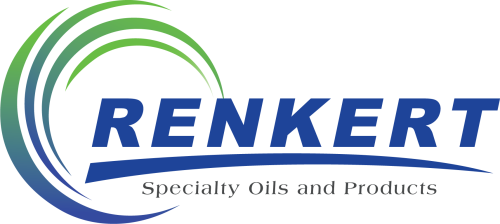
Now that 2024 is in full swing, lubricant manufacturers are keeping an eye on the regulatory changes on the horizon that will affect the industry.
Abiding by new rules and regulations while maintaining your bottom line can be a challenge, but one way to make it easier is by working with an SQF-certified supplier.
SQF (Safe Quality Food) certification by the Global Food Safety Initiative is inspired by the ISO 9001 quality management standard.
When paired with relevant health and safety criteria, SQF is a widely recognized program for safe and efficient processes that can help keep lubricant makers up to date.
Regulatory Changes to Expect in 2024
The Independent Lubricant Manufacturers Association (ILMA), of which Renkert Oil is a member, has identified some of the new and continued concerns that businesses in the lubricant industry should watch out for in 2024.
1. Drum Waste Management
An advance notice of proposed rulemaking from the EPA suggests that new rules about the management of lubricant residue in used 55-gallon drums could be on their way.
Though it remains unclear exactly what form new regulations relating to this issue will take, some possibilities are:
- Lowering the current limit on the acceptable amount of residue, which is one inch per 55-gallon drum.
- New documentation requirements surrounding the use of used drums.
- Mandating rinsing and reconditioning of used lubricant drums.
How SQF Can Help
SQF certification is a process-oriented approach perfect for integrating new regulatory requirements, like the handling of used lubricant drums.
Not only do SQF standards require that such a process be as clean and sustainable as possible, but also that it be integrated into your production flow in such a way that it remains maximally efficient.
2. Recategorizing Oily Wastewater as Hazardous
The Resource Conservation and Recovery Act establishes that used oil can be treated as nonhazardous waste. However, some state legislators have begun to suggest that this rule may provide a loophole for the disposal of hazardous waste when oil is combined with wastewater.
A rule change that recategorized mixtures of oil and water with less than 50 percent oil as hazardous could prove to be a significant headache, especially for businesses that recondition used products.
How SQF Can Help
One of the advantages of the SQF system is that it establishes a method for keeping product lines separated. This can help businesses prevent the comingling of hazardous and non-hazardous materials that can happen even when mixed-use lines are thoroughly cleaned.
SQF protocols also emphasize meticulous record keeping, so that when you use oil from an SQF-certified supplier you can be confident about what goes into your products and that they meet government regulations.
3. Updating the Hazard Communication Standard
Once again, the Occupational Health and Safety Administration (OSHA) has let the whole year pass by without publishing its update to the Hazard Communication Standard (HCS).
The HCS sets guidelines that ensure that employees understand the risks associated with potentially hazardous chemicals in the workplace. Changes are expected to come in the details of safety data sheets companies must fill out for each of their products.
How SQF Can Help
Companies that follow SQF standards already meet OSHA requirements for communication about non-consumable products. Working with SQF-certified suppliers is often a good way to keep on top of updates in regulatory policy.
That’s because SQF keeps up to date on the cutting edge of quality management and safety best practices, often staying ahead of new regulations and guidelines.
Working With SQF-Certified Renkert Oil
An SQF certification is a widely recognized sign of a company’s commitment to quality management and consistency. Achieving the certification year after year is a testament to the meticulousness of every member of the team.
At Renkert Oil, we take our SQF certification seriously because it represents the values that are important to us: consistency, efficiency, attention to detail, and safety.
And this brings important benefits to our clients. Working with SQF-certified suppliers helps businesses with their supply chain documentation, integrating new regulations into their process, and staying on top of policy reforms.
For example, Renkert Oil maintains SDS (safety data sheets) with Chemtrec for 24/7 access to handling, hazard, and other information about our products. This easy access can be key to correctly handling products, especially in the case of an emergency.
For more information about how working with Renkert Oil can help you prepare for the lubricant landscape’s shifting regulatory landscape, contact us today.
